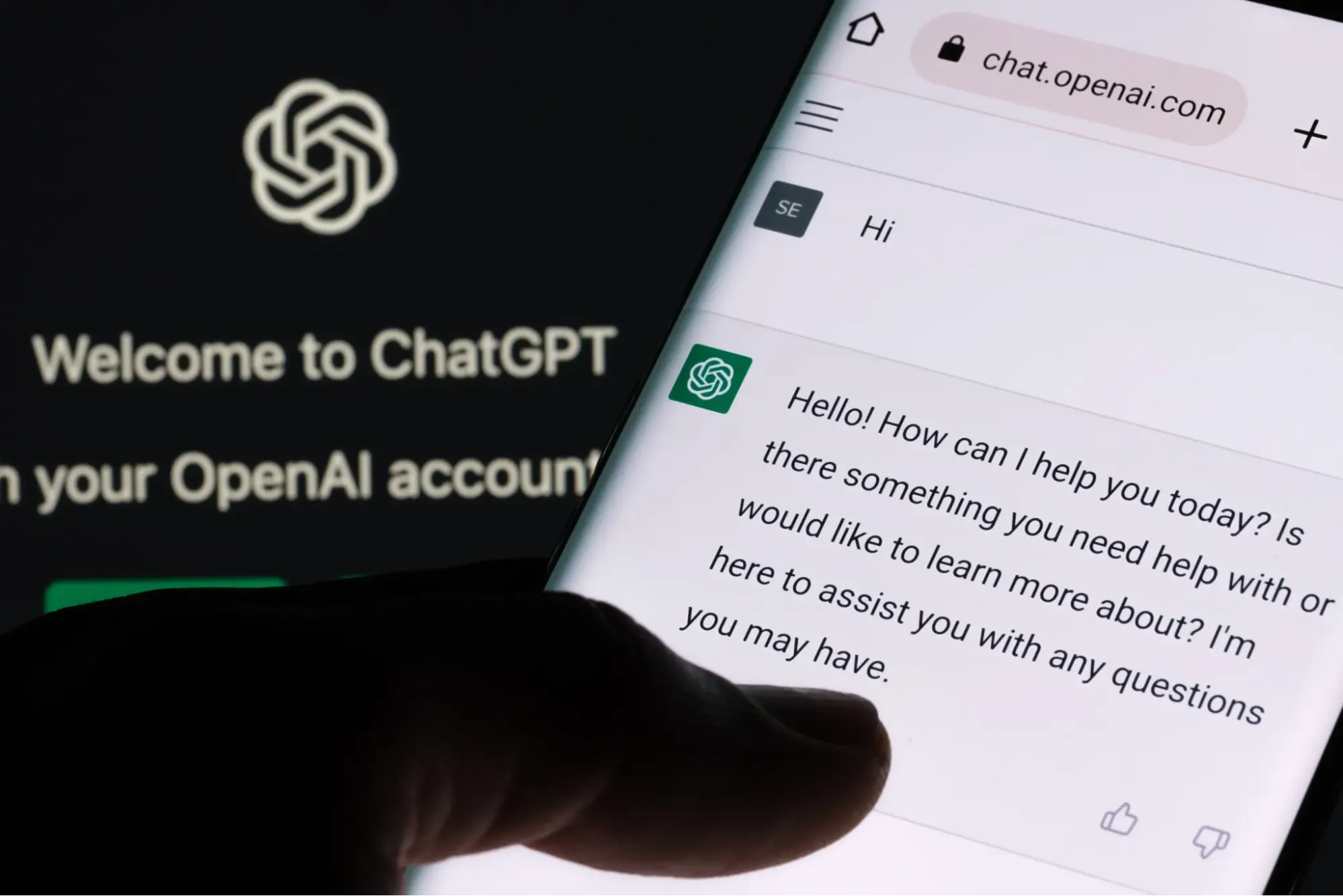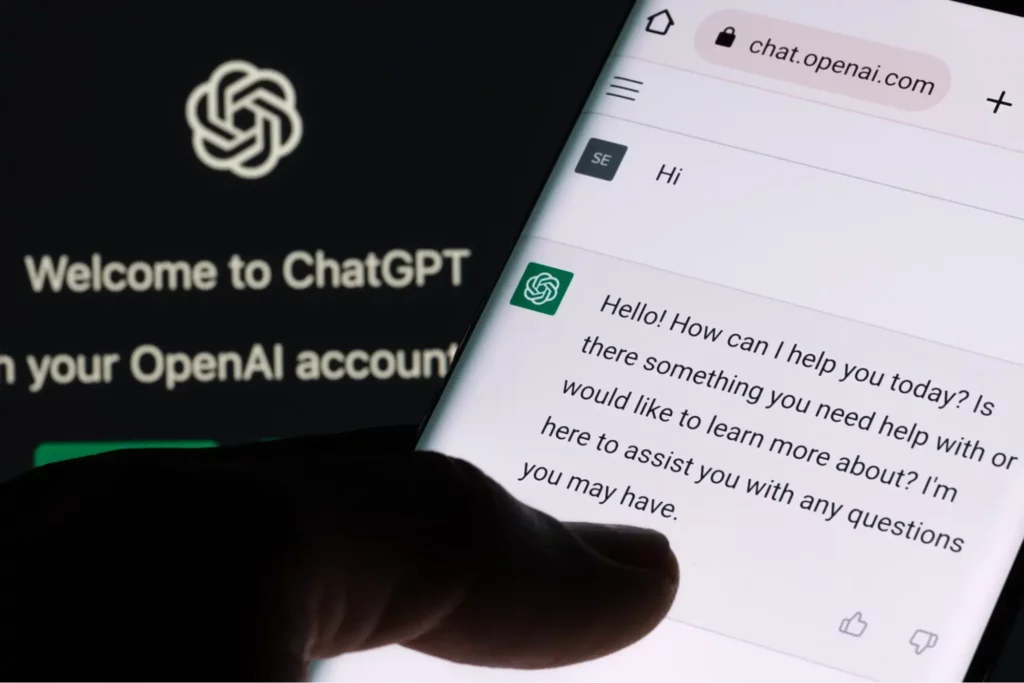Aug. 13, 2024
AI, meanwhile, is almost impossible to imagine without. It is causing change in almost all areas. Our online search behavior, and consequently search engine optimization (SEO), are certainly no exceptions. What is the difference between searching on ChatGPT and Google, what is the impact for your business and how can you prepare? We tell you in this blog!


Google:
Google Search indexes and ranks pages based on algorithms such as PageRank. When searching, Google searches its database to show the most relevant results based on factors such as relevance, authority and user experience.
ChatGPT:
ChatGPT, developed by OpenAI, is an AI chatbot trained on large amounts of text. It understands and generates natural language. Instead of showing search results, ChatGPT provides direct answers based on the context of the text entered. Keep in mind, however, that ChatGPT does not display accurate information and has its own disclaimer that it does not display real-time data.
Google:
Google uses complex algorithms to assess the reliability and relevance of information. Pages from reputable sources are ranked higher, allowing users to quickly assess a source's reliability.
Chat GPT:
ChatGPT generates responses based on pattern recognition. Although trained on reliable sources, it can sometimes give inaccurate or outdated information because it does not have access to real-time data. So it's important to remember that ChatGPT (or other AI chatbots) don't actually "know" anything. They are purely looking at patterns discovered in their training. This can be accurate, but can also make very wrong links.
Google:
Google offers an interactive experience where users refine searches based on displayed results. This may require multiple searches, but provides access to a wide range of resources and perspectives.
Chat GPT:
ChatGPT offers a conversational experience. Users ask a question and receive an immediate response, which is useful for quick, specific information. The lack of source citation can be a drawback when verification of information is crucial.
An often overlooked aspect is the energy consumption of both Google and ChatGPT. Energy consumption per query or prompt differs significantly:
ChatGPT's annual CO2 emissions are comparable to the emissions of 600,000 cars each driving 20,000 kilometers per year, while Google is equivalent to about 105,000 cars.
Optimization for Google still remains essential for your Web site. Google indexes and ranks pages based on complex algorithms that assess factors such as relevance, authority and user experience.
No, right now you cannot optimize your website specifically for ChatGPT like you can for Google. ChatGPT provides answers based on the large amount of text data it has been trained with, through September 2023. This means that ChatGPT does not have real-time access to actual Web sites or live data. It can only use information that was already present in the training data. Even the paid version, which does have Internet access, does not use this data in the same way as a search engine.
Because of this, traditional SEO, as we know it for Google, is not possible for ChatGPT. But by focusing on SEO for Google, you ensure that your website performs well in search engines. This also increases the chances that the information on your site will be picked up and displayed correctly by AI models like ChatGPT. Win-win!
So while direct optimization for ChatGPT is not possible (yet), you can take some general steps to improve your online visibility:
So SEO remains the way to go. By investing in search engine optimization, you ensure that your website ranks well in search engines such as Google, which can also indirectly contribute to better findability through AI models such as ChatGPT. For more tips on how to improve your SEO, check out this article: SEO vs. SEA: search engine marketing.
During Google I/O 2024, Google presented Gemini, their newest AI model. Gemini is very similar to ChatGPT and Google is slowly but surely integrating it into their search engine as well. According to them, the future is that you get a summary on a query, followed by the links as we know them.
Currently, this is not very far along, but Google is working very hard on this. Just as Microsoft is rolling out ChatGPT in a lot of apps.
New AI tools are added every day, but that does not mean that traditional methods for SEO and SEA are obsolete. On the contrary, they remain crucial for improving your online visibility and reaching your target audience. By investing in SEO, you ensure that your website performs well in search engines such as Google, which also indirectly contributes to your findability through AI models such as ChatGPT and Gemini. Thus, you are also investing in a future-proof website.
Find out how to get your website ready for the future. Schedule a no-obligation consultation with our specialists!
Interested?
Contact us
We use cookies on our website to provide you with the most relevant experience and personalized ads by remembering your preferences and repeat visits. By clicking "accept all," you consent to the use of all cookies. However, you can also go to "Settings" to give controlled consent.